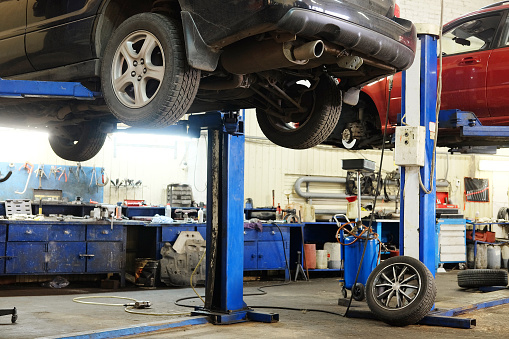All Categories
Featured
Routine engine tune-ups are important for maintaining your automobile's efficiency, enhancing gas effectiveness, and prolonging its lifespan. Whether you're an experienced automobile proprietor or a novice, comprehending the essential facets of an engine tune-up can aid you maintain your auto running efficiently for several years. Right here are some vital pointers to guide you through the process.
- Change the Flicker Plugs. Ignition system are tiny however magnificent components that play an important role in igniting the fuel-air blend in your engine. Over time, they can break or become fouled, leading to bad engine performance, reduced fuel effectiveness, and difficult beginnings.
Throughout a tune-up, evaluate your spark plugs for wear and replace them as needed. For most vehicles, stimulate plugs ought to be replaced every 30,000 to 100,000 miles, relying on the kind and material. Fresh trigger plugs guarantee reliable combustion and smoother engine operation.
- Check and Change the Air Filter. The air filter is your engine's initial line of protection against dirt, debris, and various other contaminants. A clogged or unclean air filter can restrict airflow, triggering your engine to function more challenging and take in more fuel.
Check your air filter throughout a tune-up and replace it if it's filthy or past its advisable service period. A tidy air filter improves engine efficiency and improves gas economic climate.
- Inspect the Fuel System. With time, your fuel system can accumulate dust and carbon down payments, reducing engine efficiency and gas performance. Cleansing the gas injectors and gas lines throughout a tune-up assists preserve appropriate gas distribution and combustion.
You can utilize a gas system cleaner or have an expert mechanic carry out an extra comprehensive cleansing. This step is especially beneficial for older automobiles or cars and trucks regularly driven in stop-and-go web traffic.
- Inspect the Belts and Pipes. Belts and tubes are essential for different engine functions, such as running the alternator, water pump, and cooling. Throughout a tune-up, check for cracks, fraying, or indicators of endure these elements.
Replace any worn-out belts and pipes to protect against possible breakdowns. A broken belt or dripping hose pipe can bring about engine overheating or loss of power, so dealing with these concerns without delay is necessary.
- Change the Engine Oil and Oil Filter. Engine oil is crucial for lubing moving components, decreasing friction, and regulating engine temperature level. Gradually, oil comes to be contaminated and loses its performance.
As part of a tune-up, change the engine oil and oil filter. Utilize the kind of oil advised by your car's maker and adhere to the suggested adjustment periods. Tidy oil maintains your engine running smoothly and stops early wear.
- Evaluate the Battery and Billing System. A healthy battery is essential for beginning your cars and truck and powering its electric systems. Throughout a tune-up, inspect the battery's voltage and inspect the terminals for corrosion. Tidy the terminals if needed and ensure a safe connection.
Furthermore, examination the generator and billing system to guarantee your battery stays charged during procedure. If your battery is weak or old, think about changing it to avoid unanticipated breakdowns.
- Flush and Re-fill the Coolant. The cooling system controls your engine's temperature, avoiding it from overheating. Old or infected coolant can shed its performance, bring about prospective engine damages.
Throughout a tune-up, purge the old coolant and replace it with a fresh combination. Additionally, evaluate the radiator, thermostat, and pipes for leaks or damage. Keeping the cooling system in good problem ensures your engine runs at the appropriate temperature.

- Address Warning Lights and Unusual Symptoms. Modern automobiles are furnished with analysis systems that alert you to potential concerns with dashboard warning lights. If your check engine light or any other warning signs get on, resolve them during your tune-up.
Furthermore, take notice of unusual signs and symptoms such as odd sounds, harsh idling, or reduced gas performance. An expert mechanic can detect and solve these troubles throughout the tune-up procedure.
- Don't Neglect the Exhaust System. Your auto's exhaust system removes hazardous gases from the engine and ensures proper discharges. Check the exhaust system for leaks, rust, or damages during a tune-up. A damaged exhaust system can affect engine efficiency and cause environmental and safety and security issues.
- Usage High-Quality Components and Fluids. When changing components or rounding off liquids during a tune-up, always select top quality products that fulfill your automobile's specifications. Using poor parts or inaccurate fluids can adversely influence your engine's efficiency and durability.
Verdict: Regular Tune-Ups Are Secret to Engine Wellness. Taking the time to tune up your engine ensures it runs efficiently, saves fuel, and lowers the threat of breakdowns. Whether you execute these jobs yourself or rely on a relied on auto mechanic, regular tune-ups are an investment in your lorry's integrity and long life. Comply with these ideas, and you'll appreciate a smoother, more reliable ride for many years to come.
Latest Posts
Find the Top Auto Repair Deals in Montclare, Chicago
Trustworthy Overhead Door Solutions for Houses and Businesses
Improve Your Residential Property with Overhead Door Systems
